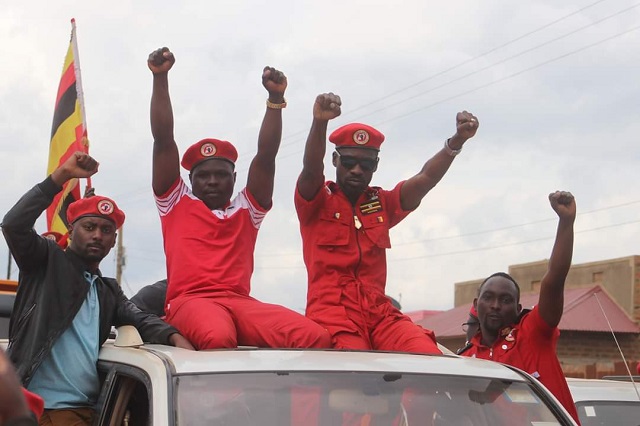
Kampala, Uganda | THE INDEPENDENT | The coronavirus pandemic is not only causing havoc around the world but is obviously going to affect the electoral processes of many countires and gifting some long time leaders a chance to keep hold onto power.
One of the countries whose electoral roadmap is starting to be affected is Uganda. The country is supposed to go to polls at the beginning of next year to fill all elective positions including the presidency.
However every COVID-19 case that is confirmed in Uganda, it throws doubts of the possibility of having these elections during the time they were scheduled to take place.
According to the Electoral Commission revised Roadmap for 2020/2021 general election, there were a number of activities that had been planned for the month of March and April which have not been able to take place because of measures instituted by the government in response to the pandemic.
Addressing the nation on March 18, president Yoweri Kaguta Museveni froze all gatherings including those by political players as a means to prevent the spread of the virus. This meant that several Electoral Commission activities were effectively banned because in their nature, they involve the gathering of people.
According to the Roadmap between March 11 and 20, there was supposed to be the display of tribunal recommendations on who should be removed from the voters’ register at each parish. By the time of the ban of gatherings, the display was two days shy of completion. It’s not clear whether after the country gets back to business it will not be repeated.
Today April 6 up to Friday April 10, the EC was going to gazette and publish presidential and parliamentary candidates’ nomination dates and venue. From April 8- 17, the EC was going to nominate village special interest groups such as the older persons, youths and people with disabilities. They would also use the same time to campaign and have their elections between April 20-24. This process would extend to the parish level for the same interest groups between April 27-29.
Going by the directives of the President, if COVID-19 is not a threat anymore, the country will go back to normal business earliest April 20 after the completion of the 32 day ban on public gatherings. However elsewhere, where there has been a lockdown like Rwanda, Italy, United Kingdom, Spain, the lockdown has been extended at least for another 14 to 21 days as the virus in some people takes longer to incubate.
Jotham Taremwa, the spokesperson of the EC says, if after this month the country is opened up, the delay in the execution of certain activities due to the COVID-19 lockdown can be managed.
“Of course we had to postpone the April program hoping that this problem would quickly go away and we go back on the drawing board to come up with a new program which we shall be able to communicate to the country,” said Taremwa.
He added that by the look of things, the COVID-19 seems to be more serious than anybody would have imagined.
The 2021 election preparations had started gathering steam with over 30 candidates writing to the Electoral Commission notifying them of their intentions to unseat President Museveni who by the end of this term on May 12 2021, will have ruled Uganda for 35 years.
Among the notable aspirants include; Robert Kyagulanyi Ssentamu commonly known as Bobi Wine, the Kyadondo East Member of Parliament and Lt Gen. Henry Tumukunde, who is currently in prison on charges of treason which were brought against him barely two weeks after his public declaration of interest to challenge his former commander in chief.
According to the constitution, article 61(2) as amended 2017, “The Electoral Commission shall hold presidential, general parliamentary and local government council elections within the first thirty days of the last one hundred and twenty two days before the expiration of the term of President, Parliament or local government council as the case may be.”
However article 103 (3)d states that there will be a presidential election within 30 days of the last 120 days before the expiration of the term of the President, except in the case of “an election necessitated by the fact that a normal presidential election could not be held as a result of the existence of a state of war or a state of emergency, in which case, the election shall be held within such period as Parliament may, by law, prescribe,” the provision adds.
Uganda is not only the East African country whose electoral process is affected by the COVID-19. Burundi and Tanzania are also supposed to have their elections this year.
Elsewhere in Africa, Ethiopia, Malawi, Ivory Coast, Burkina Faso, Egypt, Ghana, Seychelles and Nigeria are also supposed to hold elections this year.
******
URN
 The Independent Uganda: You get the Truth we Pay the Price
The Independent Uganda: You get the Truth we Pay the Price





